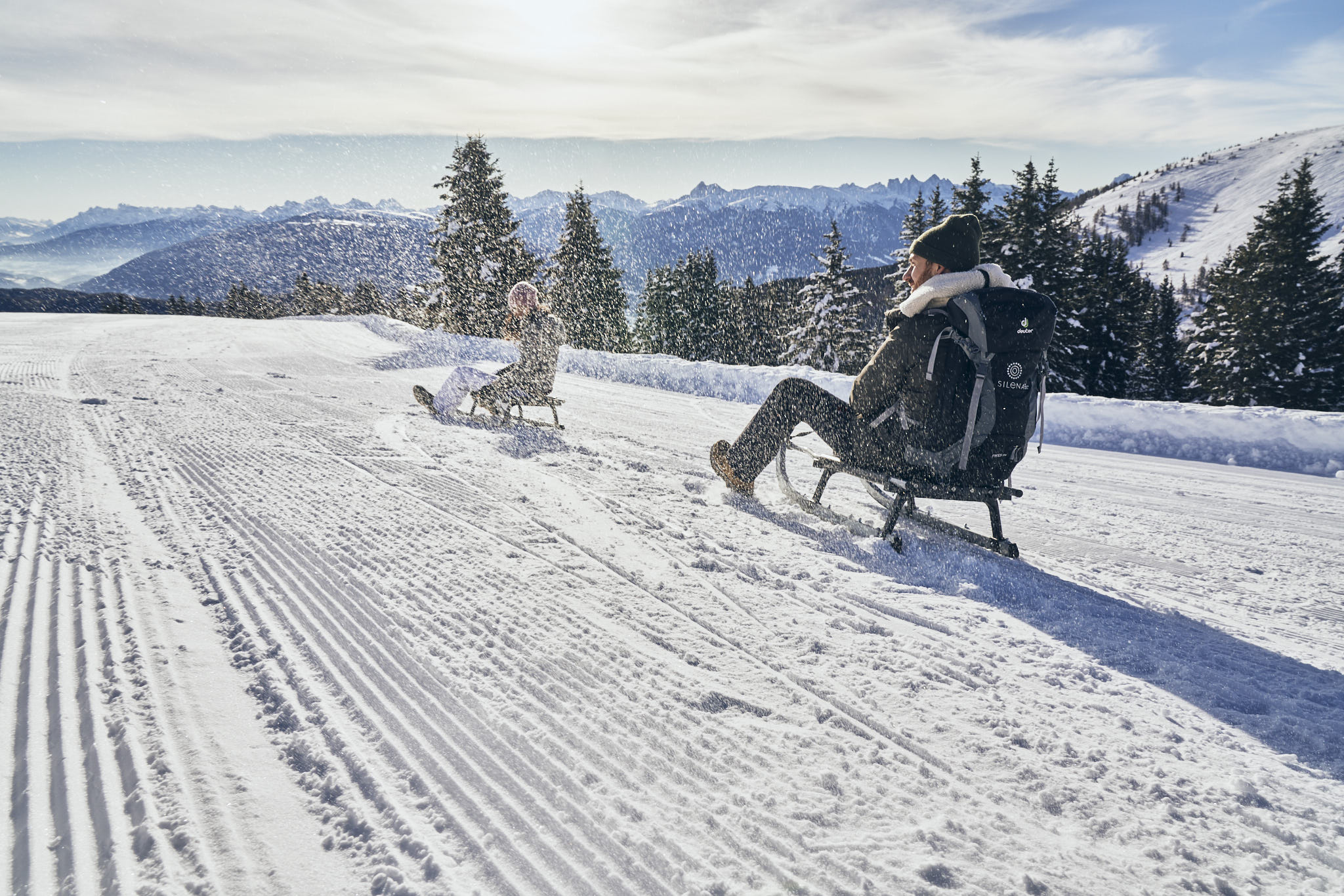Impressive mountain panoramas, fresh air, and lots of exercise – skiing is one of the best ways to be in nature.
However, the popular winter sport can also harm the environment. Skiers are already seeing the effects of climate change on the slopes when, due to less consistent snowpack and increasingly warm temperatures, skiing is mainly done on artificial snow in some areas. Is it even possible to have a sustainable ski vacation? How do you make your ski vacation sustainable and what can skiers and snowboarders do to reduce their carbon footprint and become eco-friendly winter sports enthusiasts?
From the choice of the ski resort to the equipment – these small changes can contribute to reducing the carbon footprint of every skier.

Make sure your ski destination goes green
From powering lifts to snowmaking, some ski resorts can waste energy and harm the climate. The good news is that more and more resorts are making great strides in sustainability, using renewable energy sources to power lifts, employing innovative energy-saving snowmaking systems, conserving snow until the next season, and offering more public transportation.
Choose a ski resort with a snow guarantee
As mentioned above, artificial snow consumes an incredible amount of energy and water resources. Lower-lying ski areas often need snow cannons to keep them in service. To accomplish this, artificial reservoirs are created and water is diverted. As a result, there is often significantly less water in the alpine rivers. Therefore, look for a ski resort that is high enough and can thus manage without artificial snow.
Arrive by train
An environmentally friendly trip to the ski resort already contributes a lot to reducing your own CO2 footprint. Many Alpine winter destinations are very easy to reach by train. Depending on where you are traveling from, taking the train can not only be more environmentally friendly but also much more relaxing. The Zugspitze in Garmisch-Partenkirchen, or in Austria Kitzbühel, Seefeld and St. Anton are easily reached by train. And in Switzerland, the Rhaetian Railway serves St. Moritz, Arosa, and Davos while Zermatt is only accessible by train. South Tyrol is also well connected with regular direct trains from Munich.
Book a green hotel
Make sure your hotel uses resources wisely and does its part to protect the environment. The hotel should support the local economy by buying as much as possible from regional producers and farmers. In this way, it helps to preserve the region. On average, a person consumes far more energy per night in a hotel than at home. Therefore, it is also important that the hotel uses renewable energy. The Valsana Hotel in Arosa operates its own ice battery, which it uses to generate electricity from geothermal energy. Right next to the ski lift and with an extensive spa, the Silena in South Tyrol pays close attention to regionality and buys from surrounding farmers, hunters, and craftsmen.

Ski mindfully and try out other winter sports
There is hardly a better workout than taking your turns on a cross-country ski trail. Cross-country skiing, touring and winter hiking are not only more compatible for the environment than alpine skiing, but also a very good fitness workout. Be careful not to go off-piste. Because this can affect both plants and animals. These often linger in the snow or undergrowth and you might startle them or even damage their habitat.
Buy sustainable ski apparel
From skis to outerwear to ski goggles and gloves, opt for sustainable products, and that doesn’t mean you have to sacrifice quality or performance. There are some pro ski wear brands that are making big leaps forward with eco-friendly products, using sustainable production processes and innovative materials to keep us performing on the slopes without harming the environment. For example, new eco-friendly ski equipment includes algae-based skis and sustainable bamboo, which naturally has an ideal strength-to-weight ratio.
Eat local, regional, and seasonal
Ask your hotel for restaurants with typical local cuisine – this way you are usually already on the safe side and it will certainly taste delicious. Prefer local dishes. Sushi is usually not sustainable at 1000m above sea level unless it comes from sustainable freshwater fish farming. Game, however, can be. If your hotel values sustainability, it will certainly have good restaurant tips for you.
Use chemical-free wax
Have you ever thought about what’s in your ski wax? Ski and snowboard waxes are essential for our bases to glide on the snow and for us to ski safely. There is a wide range of waxes on the market, some of which use harmful chemicals such as paraffines and PFCs (perfluorochemicals). When these seep into the snow and enter waterways, it is toxic to vegetation and wildlife. They are also harmful to our health, as they have been linked to liver and cardiovascular damage. Therefore, choose biodegradable ski wax.



